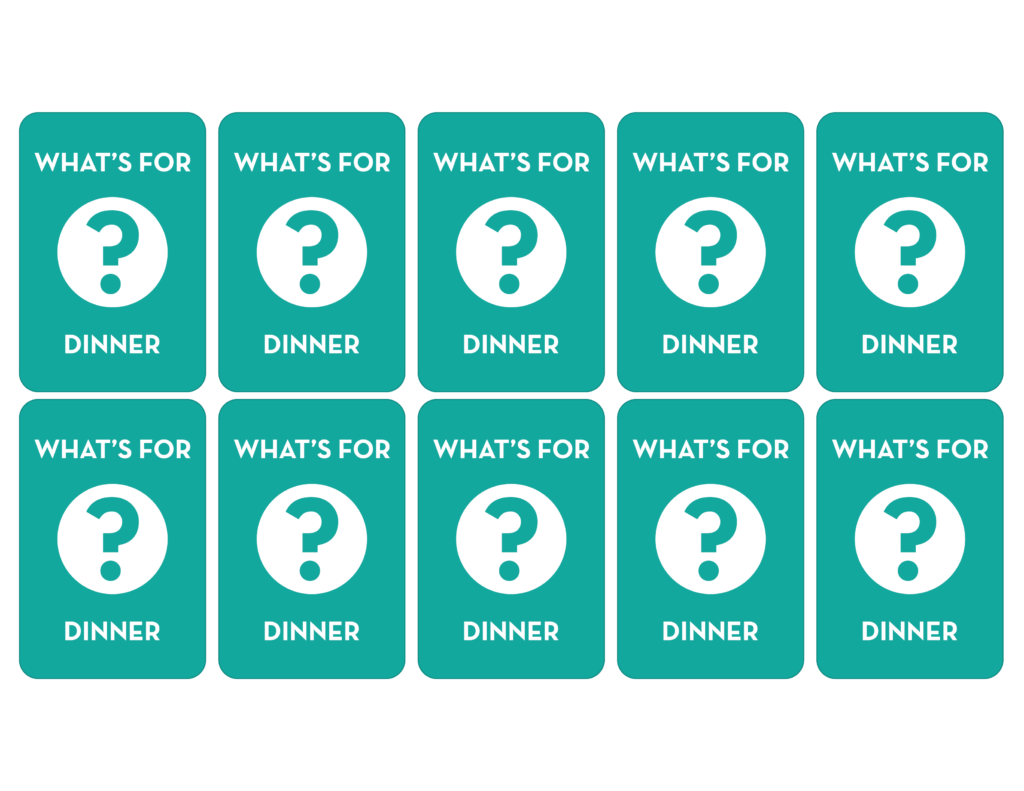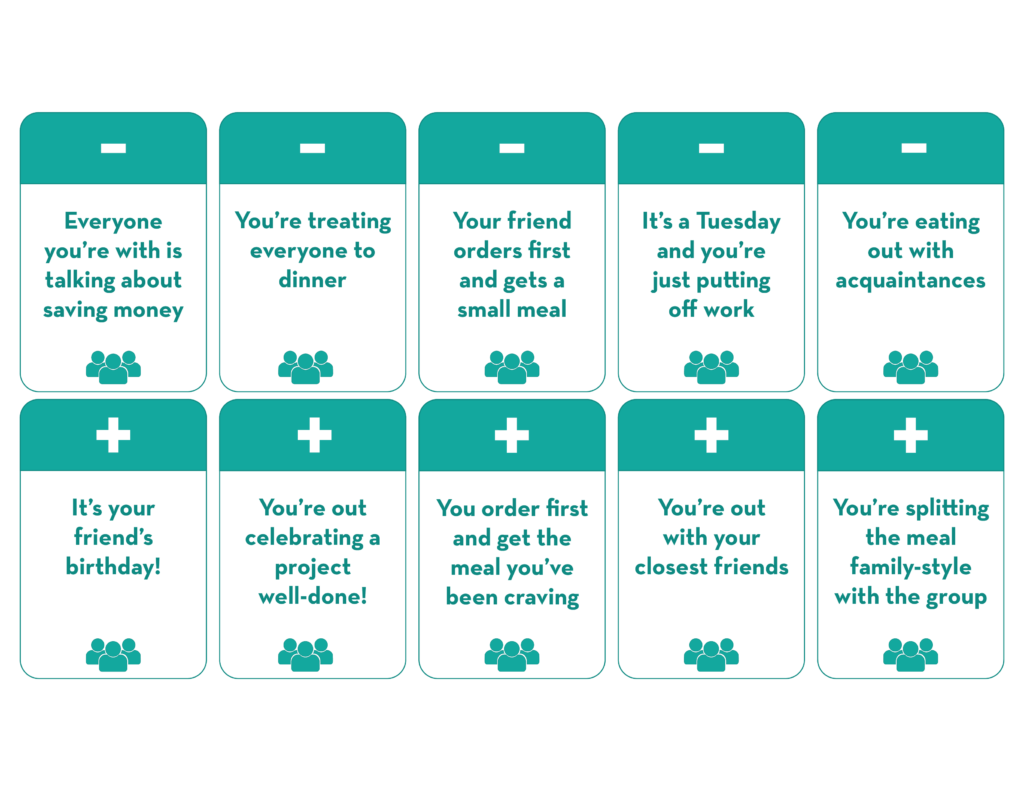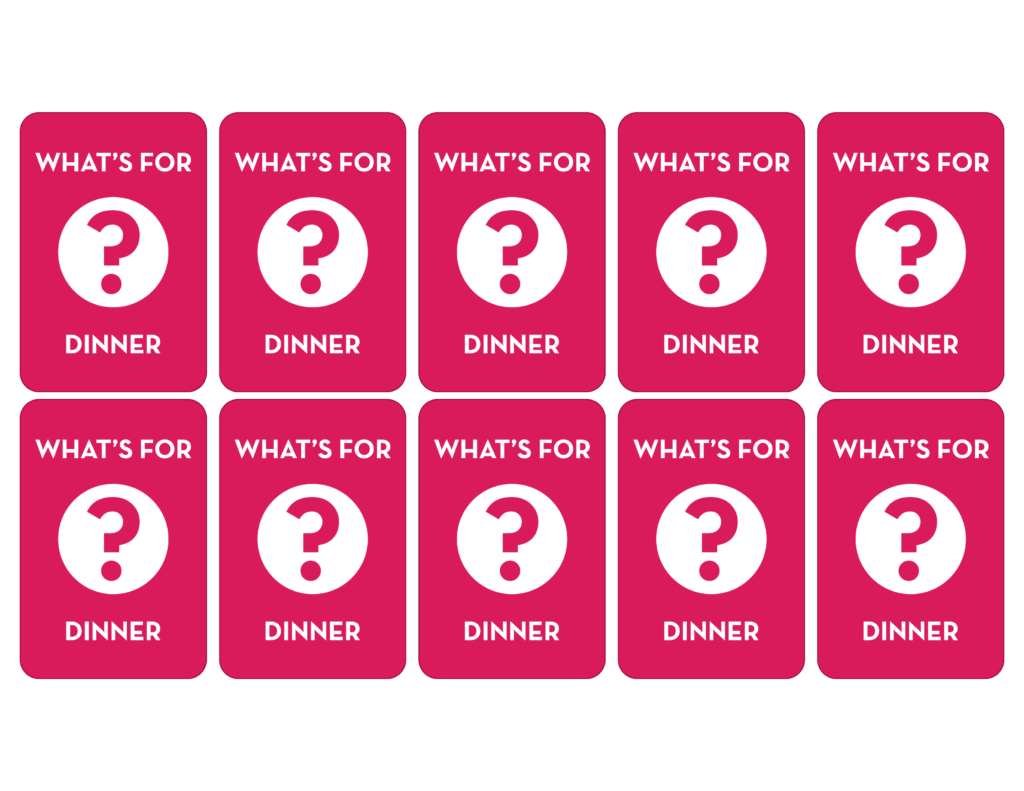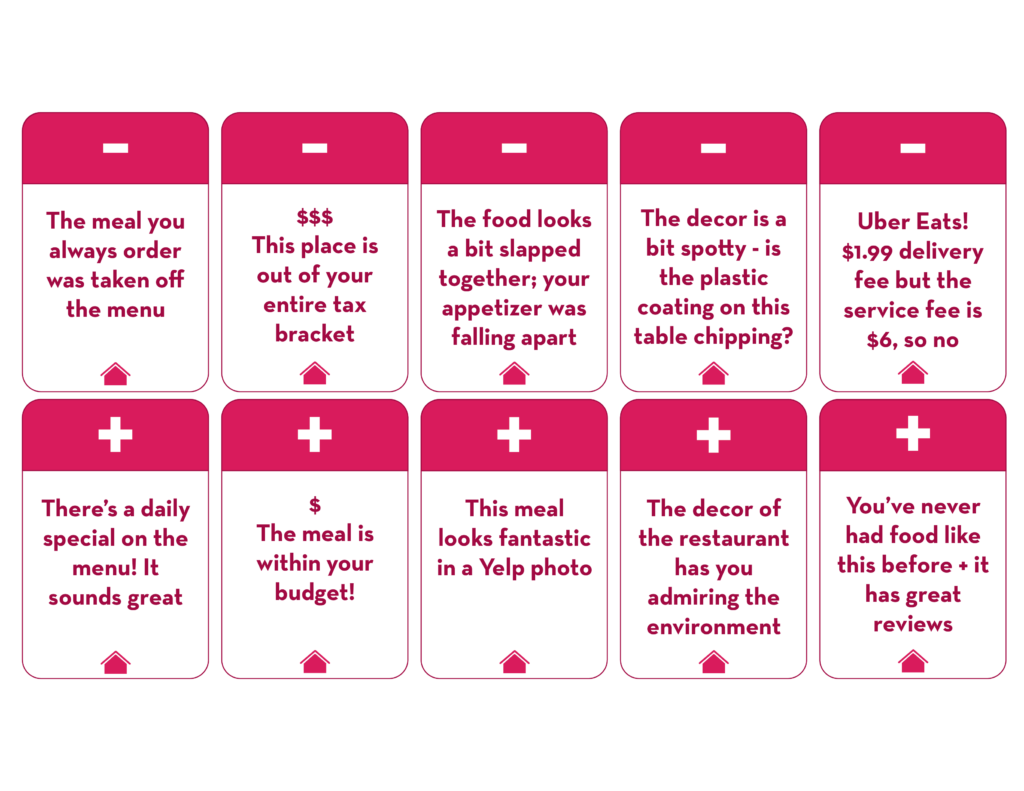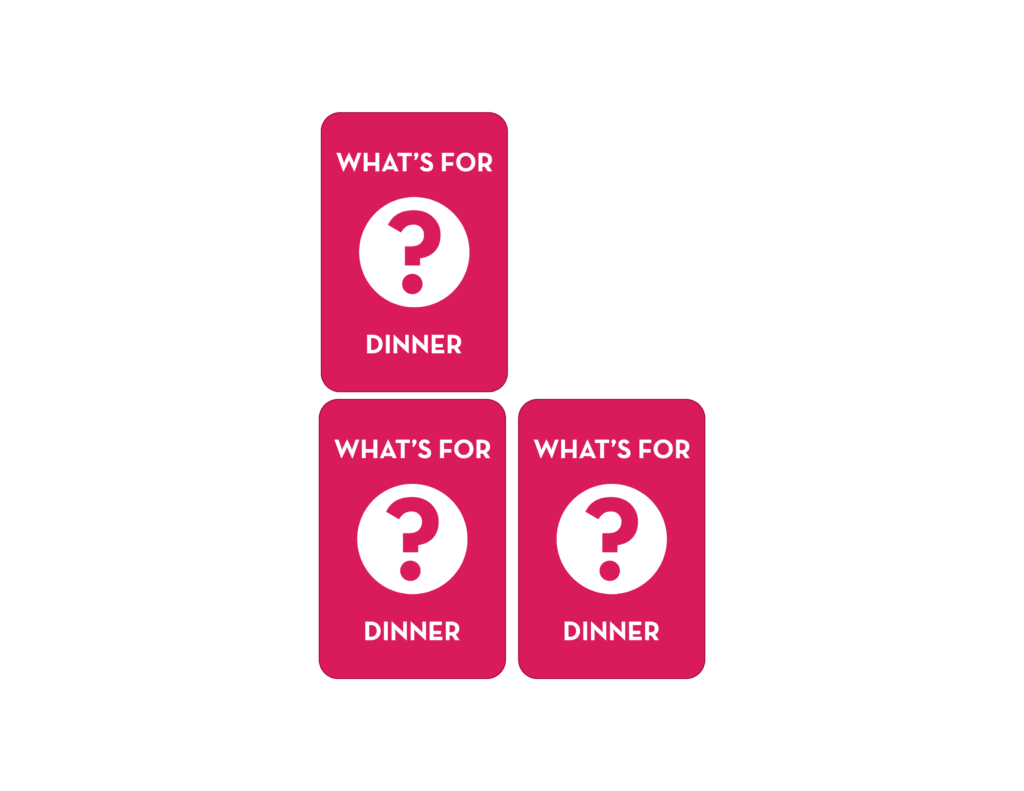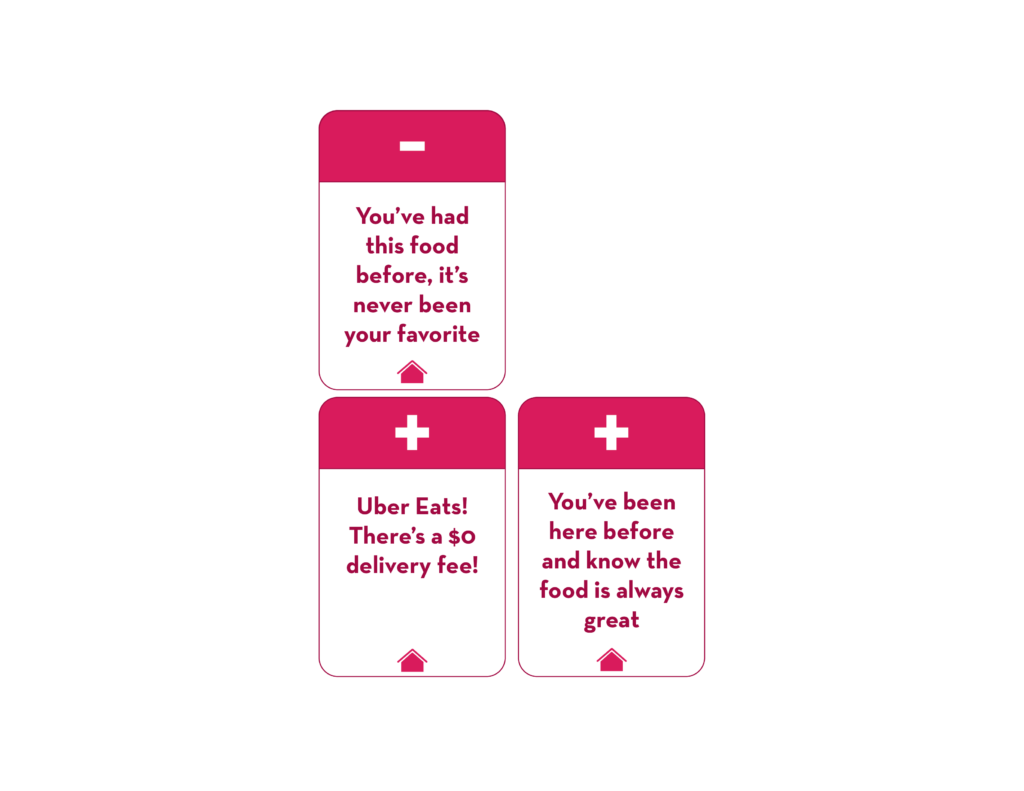Whenever I go out to dinner or at least contemplate ordering food, I find that many times I’ll end up not ordering what I was planning on getting, or even just going to a different restaurant altogether. Then many times afterward, I’m just left confused by my own actions. So, I decided to take a step back to pin-point and analyze some of the factors that go into these decisions and found that what persuades me the most when getting food can be boiled down to the intersection of two types of factors: Restaurant-Specific and Interpersonal.
To show how sporadic these persuasive devices can be, and how quickly they affect my decisions, I decided to make a card game called What’s For Dinner? that allows you to play around with these factors and discover how they change the outcomes of my meal experiences. The game itself is a bit of an over-simplification, as there are more situational factors to be considered as well, but it does show the interaction of the primary persuasive devices that I have identified at play.


As you can see by the playing cards, many of the persuasive devices that are behind my meal choices aren’t of particularly intentional rhetorical nature – instead, these persuasive elements are based on my personal perception of the situation and the rhetoric that I place onto these things because of it. For instance, the interpersonal factors that I identified never had anyone explicitly trying to change my preference of what to order or where to eat; instead, their own actions influenced my own because they caused me to re-evaluate my potential actions. With this in mind, I will further explain the topics in my cards and how they persuade me to make certain decisions when ordering food at a restaurant.
INTERPERSONAL FACTORS
The interpersonal interactions that occur when I am eating out mainly lead to a justification (or lack there-of) of ordering a particular meal. For example, one of the main interpersonal factors is “Is this a special occasion?”. Having an outing for some form of celebration acts as a justification for deciding to have a more extravagant experience, whether that be through the ordering of a larger meal or a more expensive one. When there is no special occasion, there can be insufficient justificiation or reason for the spending of more money or eating a larger/more unhealthy meal compared to what I would make at home.
Another major interpersonal factor is who I am eating with. I find that my relationship with the people I am interacting with throughout the meal can be a huge deciding factor – if I am with close friends, I don’t feel as if I will be judged based on what I order and there is even the option of going family-style and splitting meals and costs, making it a more comfortable experience to order whatever my first decision was. However, eating with acquaintances can be different as sometimes worry about their perception of me and my habits (although this judgemental situation is one that is totally imaginary on my part). Despite this judgment usually not being true, the mere presence of people who I am not comfortable with tends to persuade me to choose smaller portions or even a similar meal to what they ordered (if they order first).
RESTAURANT FACTORS
The persuasive restaurant factors contend more with the meal itself and what I would be signing up for if I order a particular dish. The general cost of a meal is a primary factor in this category, which tends to appeal to both my pathos (the visceral negative reaction that comes from paying $25 or more on a single meal) and my logos (logically knowing that I should not spend more than $25 on a single meal). If a meal, or restaurant in general, is too overpriced, it dissuades me from ordering food from there, especially if there is no positive interpersonal factor at play (i.e. When going to someplace nice as a celebration, the interpersonal justification of the celebration outweighs the restaurant factor of the cost. If this isn’t the case, then it is hard to outweigh the cost factor).
While logical factors such as cost are large persuaders, I am also persuaded by more subjective measures such as the novelty of a location or meal and its overall appearance. For instance, if there is a Daily Special on a menu, its novelty and limited supply tend to influence my decisions and ultimately order that special – if I don’t order it, I could miss the opportunity to try something great. Furthermore, the apperance of a certain dish can act as a large persuader for me. I am a very visual person and so if I see a dish pass by my table that looks great, it acts as a major persuader to ask for it; sometimes the temptation of the visual aspect can overcome the cost factor as well, as my love for the aesthetics of a meal can justify my paying a few extra dollars.
In the end, these restaurant factors boil down to: would the meal, or the novelty of this meal, be worth the price and spending my time in a particular establishment?
______________________________
I am a very indecisive person, but through the act of trying to pinpoint the various factors that lead me to make snap decisions when ordering food (even decisions that sometimes totally contradict my original intention) I have learned that the things that persuade me are fairly limited – it’s just the interplay of these factors that changes which lead to very different outcomes.
